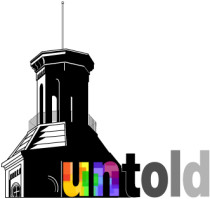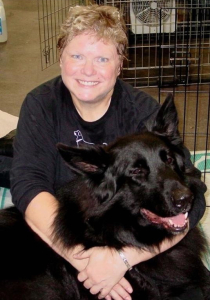The Rev. Jay Emerson Johnson, PhD, ‘83
One of the top three moments in my spiritual journey as a Christian is when I came out as a gay man. Put another way, that “moment” of coming out was a significant marker in my lifelong process of ongoing conversion (conversion is never just one moment, just as coming out is never just one moment).
Coming out has been a process of seeing at long last what the Gospel of unconditional love might really mean. And that set me on a lifelong course to where I am today – an Episcopal priest, theologian, writer, and teacher. Actually, I believe I am a far better Christian, a better priest and theologian, a better teacher and writer because I came out.
While no one comes out just once, as anything, doing so the first time can linger as a milestone moment. In the early 1980s, ensconced at Wheaton as a student and with my father teaching in the graduate school, a friend I had known since junior high school came out to me as a gay man. I returned the favor, both of us in tears.
Significantly, Peter and I sought the company of other gay men as the very first thing to do in our newly “out” lives. In some instinctive way, we recognized a need to learn how to be who we had just declared to each other we were. And yes, that meant a night of bar-hopping in Chicago with Peter’s gay cousin as our guide. (I wonder, though I’m not confessing anything, whether the school could kick us out retroactively for breaking the Pledge…)
What Peter and I felt the need to do that night followed a fairly typical pattern for gay men (and some lesbians) of my generation and background, who found it difficult and disorienting not to have any language – whether grammatical or conceptual – for the experience of not fitting into the standard heterosexual script.
Many of my gay male friends from that era went through the motions of dating girls in high school, as I did, wondering somewhat vaguely why it didn’t seem to feel the way we thought it should. For us, it was nothing short of amazing and liberating to find even just one other person with whom to hash out the language for our experience, not just in words but also in ways of comporting ourselves, interacting with others, and reading the signs and gestures of what amounted to a tribal language. We needed, in other words, to become oriented to this emerging reality, to have an “orientation.”
As a Christian, I had to do the same thing with my faith. People navigate these things differently, of course, but for me, it was simply impossible to choose between my sexuality and my faith. That realization launched me into another pattern that was typical for many people of my generation: the quest to justify my sexuality, biblically and theologically.
I have come to call that quest the “apologetic task,” a defensive posture toward religion that so many of us find familiar, or the work of justifying the inclusion of LGBT people in Christian churches by refuting bad interpretations of the Bible that prevent that inclusion.
But over the last fifteen years or so, I have come to see how that defensive, apologetic posture is really a spiritual dead-end. Surely spirituality means more than just refuting people we think are wrong. Or as a seminary colleague of mine likes to say to his students: “You can’t do Christian theology from a place a fear; the only way to do Christian theology is by being open to the possibility of joy.”
Could we really live Christian faith and do Christian theology as openly LGBT people and find joy in the process? The answer to that question has informed my life’s work. My answer is absolutely, unreservedly, whole-heartedly yes.
I’m thrilled to blog here and offer some observations about that “YES” and to learn from many others about how that “yes” can transform the world. I’ve been trying to get that word out in a variety of ways. I’m delighted to do so, for example, through my work at the Center for Lesbian and Gay Studies in Religion and Ministry at Pacific School of Religion (www.clgs.org). Of course, back when I was a student at Wheaton, I never would have imagined working at such an amazing place. I also maintain a blog about these and many other related things at www.peculiarfaith.com.
Back in 2006, I was on Wheaton’s campus for the SoulForce Equality ride visit and spoke on a panel on about my own journey. It was a wonderful (though anxiety-ridden) experience. What I tried to express there, that evening, is what I hope to articulate even more here, on this blog: being gay is not a “thorn in the flesh” of a Christian’s life; it is, rather, a profound gift from God. I wouldn’t trade any of this for a different life. (I wrote up some reflections on that trip in 2006 and included the text of my extended remarks in a piece that you can access here: http://www.clgs.org/gay-and-christian-soulforce-equality-ride-forum-wheaton-college).
To any current Wheaton students who might be wondering or even struggling with the intersections of sexuality and faith, or alums doing the same, I really do want to bear witness: I am so very happily gay and Christian. I look forward to being an evangelist of that good news here and elsewhere.



Hey all, I’d love to subscribe to Courses and other areas of the blog. Any RSS options you could turn on for us? Thank you for your wonderful work!
We’ll work on that Kerri! Thanks for the feedback.